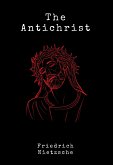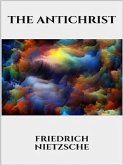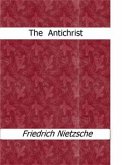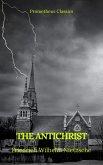VOL. I: THE ANTICHRIST: AN ATTEMPT AT A CRITICISM OF CHRISTIANITY
VOL. II: THE FREE SPIRIT: A CRITICISM OF PHILOSOPHY AS A NIHILISTIC MOVEMENT
VOL. III: THE IMMORALIST: A CRITICISM OF MORALITY, THE MOST FATAL FORM OF IGNORANCE
VOL. IV: DIONYSUS: THE PHILOSOPHY OF ETERNAL RECURRENCE
The first sketches for "The Will to Power" were made in 1884, soon after the publication of the first three parts of "Thus Spake Zarathustra," and thereafter, for four years, Nietzsche piled up notes. They were written at all the places he visited on his endless travels in search of health-at Nice, at Venice, at Sils-Maria in the Engadine (for long his favourite resort), at Cannobio, at Zürich, at Genoa, at Chur, at Leipzig. Several times his work was interrupted by other books, first by "Beyond Good and Evil," then by "The Genealogy of Morals" (written in twenty days), then by his Wagner pamphlets. Almost as often he changed his plan. Once he decided to expand "The Will to Power" to ten volumes, with "An Attempt at a New Interpretation of the World" as a general sub-title. Again he adopted the sub-title of "An Interpretation of All That Happens." Finally, he hit upon "An Attempt at a Transvaluation of All Values," and went back to four volumes, though with a number of changes in their arrangement. In September, 1888, he began actual work upon the first volume, and before the end of the month it was completed. The Summer had been one of almost hysterical creative activity. Since the middle of June he had written two other small books, "The Case of Wagner" and "The Twilight of the Idols," and before the end of the year he was destined to write "Ecce Homo." Some time during December his health began to fail rapidly, and soon after the New Year he was helpless. Thereafter he wrote no more.
ABOUT AUTHOR:
Friedrich Wilhelm Nietzsche (1844 - 1900) was a German philologist, philosopher, cultural critic, poet and composer. He wrote several critical texts on religion, morality, contemporary culture, philosophy and science, displaying a fondness for metaphor, irony and aphorism.
Nietzsche's key ideas include the Apollonian/Dionysian dichotomy, perspectivism, the Will to Power, the "death of God", the Ubermensch and eternal recurrence. One of the key tenets of his philosophy is the concept of "life-affirmation," which embraces the realities of the world in which we live over the idea of a world beyond. It further champions the creative powers of the individual to strive beyond social, cultural, and moral contexts.Nietzsche's attitude towards religion and morality was marked with atheism, psychologism and historism; he considered them to be human creations loaded with the error of confusing cause and effect. His radical questioning of the value and objectivity of truth has been the focus of extensive commentary, and his influence remains substantial, particularly in the continental philosophical schools of existentialism, postmodernism, and post-structuralism. His ideas of individual overcoming and transcendence beyond structure and context have had a profound impact on late-twentieth and early-twenty-first century thinkers, who have used these concepts as points of departure in the development of their philosophies.
Most recently, Nietzsche's reflections have been received in various philosophical approaches which move beyond humanism, e.g. transhumanism. Nietzsche began his career as a classical philologist-a scholar of Greek and Roman textual criticism-before turning to philosophy.
In 1869, at age twenty-four, he was appointed to the Chair of Classical Philology at the University of Basel, the youngest individual to have held this position. He resigned in the summer of 1879 due to health problems that plagued him most of his life. In 1889, at age forty-four, he suffered a collapse and a complete loss of his mental faculties. The breakdown was later ascribed to atypical general paresis due to tertiary syphilis, but this diagnosis has come into question. Nietzsche lived his remaining years in the care of his mother until her death in 1897, after which he fell under the care of his sister Elisabeth Förster-Nietzsche until his death in 1900.
Dieser Download kann aus rechtlichen Gründen nur mit Rechnungsadresse in A, B, BG, CY, CZ, D, DK, EW, E, FIN, F, GR, H, IRL, I, LT, L, LR, M, NL, PL, P, R, S, SLO, SK ausgeliefert werden.









